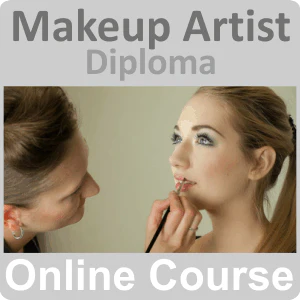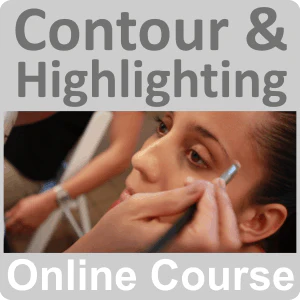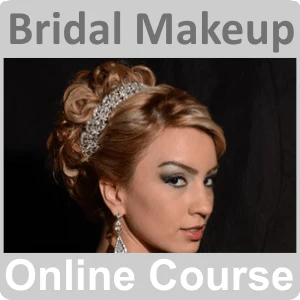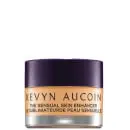“I feel beautiful without makeup on, but when I do put makeup on, it just gives me this extra pop.”
- Craig J A

- May 29, 2023
- 9 min read
Makeup artists are ultimately responsible for creating beautiful and flattering looks for their clients. They work in a variety of settings, including salons, spas, fashion shows, and film & television productions. I have spoken to various makeup artists over the years, I have heard about the early mornings and sometimes call on demand clients so I totally get the hard grind that comes with the career. If you ever walk through the Beauty Halls in Harrods you will see how in demand the makeup industry is, from the makeup consultations and the magic mirror experience (technology that allows you to digitally add make up to a selfie) makeup artistry can be such an immersive experience. We have many examples of those who have made a lucrative career from becoming a makeup artist but it doesn't come easy. To become a makeup artist you will need to develop your skills and knowledge of makeup application, as well as build a portfolio of your work.
There are no formal education requirements to become a makeup artist however many makeup artists choose to earn a cosmetology degree or certificate. These programs can teach you the basics of makeup application, as well as provide you with the opportunity to practice your skills. While not always mandatory, obtaining a makeup artist certification can demonstrate your commitment to professionalism and validate your skills. Several organisations offer makeup artist certifications such as the International Make-Up Association (IMA). Research certification options to find one that aligns with your career goals and aspirations. If you click on the images below you can see examples of some courses that are based on makeup artistry.
Now it's not imperative that you must take a formal education, online courses or workshops, you can start your career by working as an apprentice to a more experienced makeup artist.
I am just going to give a brief overview of some tips for starting a successful makeup business as this blog post is more geared towards business rather than just the art itself:
Build a strong portfolio: Your portfolio is your most important marketing tool. It should showcase your best work and give potential clients a sense of your style and skill level.
Network with other makeup artists: Networking is a great way to meet potential clients and partners. Attend industry events, join online forums, and connect with other makeup artists on social media.
Market your business: There are many ways to market your business. You can create a website, advertise in local publications, and use social media to promote your services.
Provide excellent customer service: Customer service is essential for any business. Make sure you are always professional and courteous to your clients.
Stay up-to-date on trends: The beauty industry is constantly changing. It is important to stay up-to-date on the latest trends so you can offer your clients the most current looks.
Makeup artistry as a career doesn't necessarily stop at the applying make up to clients. There are large brands owned by makeup artists where they have expanded their own personal brands to create their own beauty/makeup lines. It goes to show the opportunities that the industry can give to you from your potentially your own college, classes, makeup lines etc. Here are few examples below of makeup artists that have successfully built their own brands, if you click on the images below it will direct you to the websites for their respected makeup lines.
Bobbi Brown Cosmetics by Bobbi Brown
Kevyn Aucoin Beauty by Kevyn Aucoin
Laura Mercier Cosmetics by Laura Mercier
These brands offer a variety of makeup products, including foundation, concealer, eyeshadow, blush, lipstick, and more. They also often offer educational resources, such as tutorials and classes. The makeup artists who founded these brands have all achieved great success, and they continue to grow in popularity. They are a testament to the hard work and dedication of the makeup artists who created them. Now becoming a make up artist isn't a one size fits all, many makeup artists have started their journey by becoming skilled in a particular niche or another
Bridal Makeup: Weddings provide a significant market for makeup artists, as brides-to-be seek professional assistance to enhance their natural beauty on their special day. Establishing a bridal makeup business involves offering personalised consultations, creating captivating looks, and providing on-site services for brides, bridesmaids, and family members. Building a strong portfolio, networking with wedding planners, and participating in bridal expos are effective ways to attract clients and establish a reputable bridal makeup business.
Special Events and Occasions: Apart from weddings, there are numerous special events and occasions where makeup artists can thrive. These events include proms, graduations, parties, red carpet events, and photo shoots. Collaborating with event planners, photographers, and fashion stylists can lead to valuable partnerships and a steady stream of clients. Establishing a reputation for delivering exceptional makeup looks and creating a unique style can help differentiate a makeup artist in this competitive market.
Professional Makeup for TV, Film, and Theatre: Makeup artists skilled in special effects, prosthetics, and character transformations have ample opportunities within the entertainment industry. Film productions, television shows, theatre productions, and even commercials require the expertise of makeup artists to bring characters to life. Networking with industry professionals, joining film and theatre associations, and acquiring specialised training can open doors to exciting opportunities in this niche.
Editorial and Fashion Makeup: Working with fashion magazines, advertising agencies, and fashion designers allows makeup artists to showcase their creativity and collaborate with renowned professionals. Editorial and fashion makeup artists create captivating looks for photo shoots, fashion shows, and runway events. Building a strong portfolio, staying updated with the latest trends, and networking with fashion industry insiders are crucial steps to excel in this competitive field.
Makeup Education and Training: As an experienced makeup artist, sharing knowledge and expertise through education and training can be a fulfilling business opportunity. Establishing a makeup academy (Delmar academy for example), conducting workshops, and offering online courses can attract aspiring makeup artists who want to learn from industry professionals. Building credibility, creating comprehensive course materials, and providing hands-on training can ensure the success of an educational venture.
Freelancing and On-Demand Services: The rise of on-demand platforms and freelance opportunities offers makeup artists the flexibility to work independently. Websites and apps connecting clients with makeup artists for various occasions have gained popularity e.g. Glowify. Building an online presence, promoting services through social media, and offering personalized experiences can help freelancers thrive in this digital era.
Now we cannot discuss building your brand as a make up artist without mentioning the use of social media. Now I am sure you are familiar with these platforms I'm about to mention by now so I won't bore you with how they work, but I will show how they are being utilised within the makeup industry for those trying to build their brand & expand their reach.
Instagram: Makeup artists can make the most of Instagram through the following strategies:
Creating a Professional Profile: Makeup artists should set up a dedicated Instagram profile showcasing their work. They can showcase their best looks, behind-the-scenes moments, and before-and-after transformations. Consistency in style and branding helps create a cohesive and professional presence.
Using Relevant Hashtags: By using popular and relevant hashtags such as #makeupartist, #bridalmakeup, or #editorialmakeup, artists can increase the visibility of their posts and attract potential clients. Researching and utilising appropriate hashtags can help reach a wider audience.
Engaging with the Community: Makeup artists can engage with their followers by responding to comments, answering inquiries, and engaging in conversations related to makeup. This interaction helps build a loyal following and fosters a sense of community around their work: Now here are a couple of examples of makeup artists on Instagram
Mario Dedivanovic (@makeupbymario): Mario Dedivanovic is a highly regarded makeup artist known for his work with celebrities, particularly Kim Kardashian. His Instagram showcases his talent through stunning makeup transformations, tutorials, and product recommendations.
Nam Vo (@namvo): Nam Vo is a makeup artist known for her "dewy dumpling" makeup technique, which focuses on creating a radiant, glowing complexion. Her Instagram feed features luminous makeup looks, skincare tips, and motivational content.
2. TikTok: TikTok Makeup artists can leverage TikTok in the following ways:
Creating Quick Makeup Tutorials: TikTok's format is ideal for creating short and engaging makeup tutorials. Artists can showcase their skills by demonstrating techniques, sharing product recommendations, or creating time-lapse videos of their work. By providing valuable content, makeup artists can attract a dedicated following on TikTok.
Participating in Challenges: TikTok is known for its viral challenges. Makeup artists can join makeup-related challenges, such as transformation challenges or trend-based makeup looks. By participating in these challenges, they can showcase their creativity and gain exposure to a wider audience.
Collaborating with Influencers: Collaborating with influencers or content creators in the beauty niche can help makeup artists reach a larger audience. By creating duets, participating in collaboration videos, or being featured on popular accounts, makeup artists can increase their visibility and gain new followers:
James Charles (@jamescharles): James Charles is a prominent makeup artist and beauty influencer known for his creative and vibrant makeup looks. He has a substantial following on TikTok, where he shares makeup tutorials, transformations, and behind-the-scenes content.
Abby Roberts (@abbyrartistry): Abby Roberts is a makeup artist and body painter who gained popularity on TikTok for her incredible transformations and intricate artwork. Her TikTok videos often feature mesmerizing makeup looks and captivating visual effects.
Mikayla Nogueira (@mikaylanogueira): Mikayla Nogueira is a professional makeup artist known for her natural, "glowy" makeup looks. She shares makeup tutorials, product recommendations, and lifestyle content on TikTok, attracting a wide audience with her relatable and accessible approach to beauty.
NikkiTutorials (@nikkitutorials): Nikki de Jager, popularly known as NikkiTutorials, is a Dutch makeup artist and beauty YouTuber. She also has a presence on TikTok, where she shares makeup tips, tutorials, and product recommendations, often featuring bold and glamorous looks.
Hindash (@hindash): Mohammed Hindash, known as Hindash, is a professional makeup artist specializing in creating stunning editorial and high-fashion makeup looks. He shares his expertise and artistry through TikTok videos, providing insights into his techniques and creative process
Remember, it's important for makeup artists to tailor their content to each platform, maintain consistency in branding, and engage with their audience regularly to maximise the potential of Instagram & TikTok as promotional tools.
Solo Makeup Artist: Many makeup artists start and operate their businesses as solo practitioners. They handle all aspects of their work independently, including client consultations, makeup application, scheduling, marketing, and administrative tasks. Being a solo makeup artist allows for complete control over the business and decision-making processes. It can be suitable for those who prefer working independently or have a smaller client base.
Assistant or Apprentice: As a makeup artist's business grows, they may consider hiring an assistant or taking on an apprentice In a previous post I wrote discussing photography I discussed the idea of having a team to support you. This can be beneficial in several ways:
Additional Support: An assistant can help with tasks such as setting up equipment, preparing the workspace, managing inventory, and providing general support during makeup applications. This allows the makeup artist to focus more on their creative work and enhance the client experience.
Time Management: Having an assistant can help the makeup artist manage their schedule more efficiently, enabling them to take on more clients or allocate time for other business-related activities.
Skill Development: Taking on an apprentice allows the makeup artist to pass on their knowledge and skills to the next generation of artists. It also provides an opportunity for the apprentice to gain hands-on experience and learn directly from a seasoned professional.
Collaborating with Hairstylists and Photographers: For certain projects, such as bridal makeup, editorial shoots, or fashion shows, makeup artists may collaborate with hairstylists, photographers, fashion stylists, and other professionals in the beauty and fashion industry. Working as a team allows for seamless coordination, ensuring that hair, makeup, styling, and photography align harmoniously. Collaboration can enhance the overall quality of the final product and expand networking opportunities for all involved.
Building a Full Team: As a makeup artist's business grows significantly, they may choose to build a full team that includes makeup artists, assistants, hairstylists, and administrative staff. This allows for handling a higher volume of clients, taking on larger projects, and offering a range of services. A team approach can also provide the makeup artist with more flexibility, as team members can share responsibilities and cover for each other when necessary.
It's important to note that while having a team can offer numerous benefits, it also involves additional management responsibilities, such as training, supervision, and coordination. Makeup artists should carefully evaluate their business goals, workload, and available resources to determine if and when expanding their team is appropriate.
Ultimately the decision to have a team or work as a solo makeup artist depends on individual preferences, business goals, and the specific demands of the makeup industry in which they operate.
"Makeup artists work with the public all the time. While this can be fulfilling, it potentially leaves you open to legal action should anything go wrong." If you have your own salon or take a mobile kit out with you, it’s worth considering makeup artist public liability insurance. This covers the cost of defending a claim if your negligence causes a client to suffer an injury. Public liability insurance, Product liability insurance, Employers' liability insurance, Tools and equipment cover are all insurances you will need to consider.
The right insurance can also cover the cost of making good any damage. Say you spill makeup on a client’s carpet and stain it, having insurance in place means you can cover the cost of professionally cleaning or replacing it.
I always like to add a few book recommendations in my blog posts which can add a bit more depth to the article, and for those that want to grow their knowledge on a particular topic. Click on the images below to have a look.
I hope this post helps for those considering building a make up artist business or those that are currently in the industry but have the desire to branch out. Feel free to drop me a message to let me know who your favourite makeup artist is and why. Please let me know whether you found this blog post useful.


















Comments